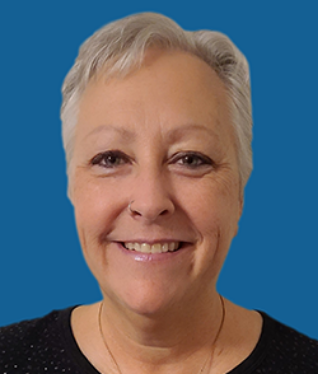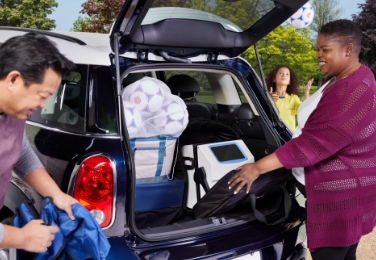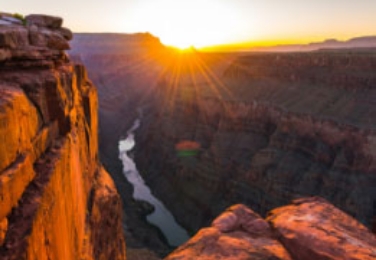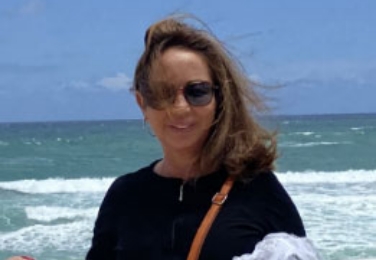Home Hemodialysis Customer Support: 866-697-8243
Peritoneal Dialysis Customer Support: 800-323-5188
Talk to a Patient Consultant About Home Dialysis: 888-200-6456
Home Hemodialysis Customer Support: 866-697-8243
Peritoneal Dialysis Customer Support: 800-323-5188
Talk to a Patient Consultant About Home Dialysis: 888-200-6456
Home Hemodialysis Customer Support: 866-697-8243
Peritoneal Dialysis Customer Support: 800-323-5188
Talk to a Patient Consultant About Home Dialysis: 888-200-6456
Home Hemodialysis Customer Support: 866-697-8243
Peritoneal Dialysis Customer Support: 800-323-5188
Talk to a Patient Consultant About Home Dialysis: 888-200-6456
Episode 6: The Road Is Calling: Freedom and Flexibility with Home Hemodialysis
Patient Advocate Dawn tells us all about her and husband Jimmie’s 3-month RV road trip. Hear the details about how they were able to leave home for 3 months without skipping a beat in Jimmie’s HHD treatments.
Interested in Home Dialysis?
Talk to a Patient Consultant today! Our consultants are all current or former NxStage® users or care partners who can help answer your questions and walk you through what to expect with home dialysis.
About the Guest
Dawn along with her husband are very passionate about sharing their story and educating others about HHD. They have been friends since they were 12 years old. They have 5 grown children and 13 grandchildren who they love spending time with. They enjoy traveling, connecting with fellow dialysis patients and care partners, going to motorcycle rallies, and spending time with their family when they aren’t out on the road. They are very active in the kidney community and enjoy empowering others.
Transcript
Vanessa:
Hi everyone, and welcome to another episode of Visits with Vanessa a podcast where we speak with home hemodialysis patients and care partners about their experiences using home dialysis. I’m actually a dialysis patient myself. Guys, I’ve been doing this for 25 years. I’m the senior manager of advocacy in Communities for Fresenius Medical Care, and today we’re going to talk all about freedom and flexibility with home hemodialysis and RV travel. Our guest Dawn, who is a NxStage Patient Advocate is just returning home from three months on the road in her and her husband, Jimmie’s new RV. We’re going to talk about their travels across the U.S. and how they were able to leave home for three months without skipping a beat, all while doing Jimmie’s HHD treatments. Welcome, Dawn.
Dawn:
Hi, Vanessa. Thank you so much for having me.
Vanessa:
Today, we’re going to be talking about your RV travels that you just did with you and Jimmie. How did you guys decide that you’re going to be inspired to travel in an RV with Jimmie throughout the United States? How did that begin?
Dawn:
Well, actually, the thought of it began 13 years ago when we were lucky enough to meet Harvey Wells. We truly thought that would be something very cool to do. And then a year ago, we were fortunate enough to be able to rent a camper for a few weeks and went out and just tried it out. And we were hooked. We had to go buy one.
Vanessa:
You get this RV and you know, you decide that you’re you’re going to travel, obviously. And my understanding is that you did a combination of needing some friends that you were planning on meeting and doing some advocacy work. So how did you start to prepare for this trip with the RV? What are the first steps that one must take when planning an RV trip?
Dawn:
The way we did it was we planned the trip and then communication is such an important aspect, you know, communicating with our team and letting them know this is what we want to do. This is where we want to go, and these are our needs. And having that conversation with the team and then going forward.
Vanessa:
OK, so you you plot out your your spots, but then, you know, Jimmie is a patient. So how does that work in terms of getting supplies? Did you have them shipped to you or put everything in the RV from the very beginning? How did you manage that?
Dawn:
Three months worth of supplies, I don’t think we could have pulled that. But I will tell you that we did have our nurse set up seven travel orders along the way. So we did know where we were going. We knew where our destinations were going to be, and we got two weeks of supplies delivered to a certain destination and we would pick them up on a certain date.
Vanessa:
OK, so you would pack up the RV with basically two weeks of supplies and then you would head to whatever destination you’re going to, and there that’s where you would have planned to pick up, you know, the next two weeks of supplies. Can you tell our listeners a little bit about how you packed up the RV and you made it work? So how did you pack that all up in your RV?
Dawn:
Well, that that took a few times of trying it out and seeing what worked and finally getting our niche. And we have a very nice dinette set, so we keep our hanging bags in the dinette seats, we have storage under the bed, and we have cabinets where we keep the cartridges in the saline. And then I have a shoe holder that I actually Velcroed to the bathroom wall that holds all of our ancillary supplies.
Vanessa:
I love it. I saw a picture of that. So you can be creative in how your source, your supplies to kind of put everything together.
Dawn:
Well, because, you know, because we’re using hanging bags, you know, when we’re on the road, that’s a lot. And, you know, my husband does more treatments than most. We’re looking at 42 cases every two weeks. That’s a lot. So, yeah, we filled up the back of the truck and even the backseat at times.
Vanessa:
Now back to a planning question for you, Dawn. What are some things that you look for in terms of the RV campsite, what do you make sure that it has? How long in advance also did you have to make reservations? I guess that’s almost a two-part question.
Dawn:
Well, you know, the thing is, is it’s it’s like dialysis, OK? Preparation is key. All right. You know, you can’t be spontaneous about any of it. But I also didn’t plan out the whole three months because life happens, and we know that. So I would plan a week, maybe two weeks ahead of time, and book a campground or a friend know we were going to a friend’s house and we would just kind of do it a little bit at a time.
Vanessa:
And what about for the RV itself? Did you have to make any modifications in order to have like, you know, electrical, water, generator, like any modifications that you’re using?
Dawn:
We have a generator that we take along with us, and it is a dual fuel. So I can run on gasoline or propane, and so we just made sure we had an extra tank of propane just to be safe. But other than that, no, we’re very self-contained. We have a nice a nice big water tank and we didn’t have to do anything.
Vanessa:
You’re out on the road for three months. And, you know, as a patient myself, I know that I have my check ins monthly with my health care team. How were you able to manage Jimmie’s check-ins with his health care team?
Dawn:
We would do his labs, we had three month’s worth of lab tubes. And so then as soon as we would draw his labs, we would drop them off at the nearest FedEx. And then a week later, we would have a telehealth appointment set up. And our doctor is very supportive of the telehealth. And so we just felt supported every step of the way.
Vanessa:
Did you bring a centrifuge with you? Because how do you spin your labs if you’re out on the road? Because you can’t just drop them off.
Dawn:
Right. Yes, we did. We did bring our centrifuge.
Vanessa:
Really when you are a home patient, you learn to do that anyway, right? So it’s bringing the centrifuge with you and that way you can spin your labs and drop it off as you go. And, you know, speaking with your health care team to make sure that they’re supporting you and working with you, because the one thing you don’t want to do is you don’t want to not A. talk to your team or B. miss any kind of appointment. And so I feel like you guys sounded like you had a very well planned out and executed trip.
Dawn:
Absolutely. Yeah. When we had our meeting with our team to discuss this trip, you know, I shared with them that we were going to need three month’s worth of medications so we don’t have to worry about stopping and getting meds filled along the way. We also needed three month’s worth of his ancillary supplies, you know, his syringes, his needles, his tape, his gauze. And also we carried three month’s worth of saline with us.
Vanessa:
So and the saline you brought with you on the RV and then you had NxStage deliver the other supplies that you needed like your hanging bags, etc, cartridges, to wherever you were staying. Just to clarify.
Dawn:
Yeah, The cartridges, the drain lines, the hanging bags, everything else that we got from NxStage.
Vanessa:
So on this trip, Dawn, you’re sharing Jimmie’s personal journey. What did you find out while you were meeting new people? Are there any moments that really stood out to you?
Dawn:
There were there were quite a few moments. One thing that we learned about each other is that we really do like each other. But there were there were so many moments that we were able to just connect with people. You know, many people would come up and question us, even just sitting in a campground, and then we would get to talking, and it was always somebody who was either on dialysis or they had a family, a family member on dialysis.
Vanessa:
Talk to me a little bit about your trip. Where where did you end up going?
Dawn:
My goodness Vanessa, we were everywhere. We started in Kansas and ended up at an NKF Walk in Ohio, and we went and saw my best friend in Saratoga Springs, New York, came out and saw you in Massachusetts, then went down to North Carolina and over to Alabama and then back up home.
Vanessa:
In your RV, you have like this big map, do you want to explain to our listeners a little bit about what you guys are doing there?
Dawn:
We have this map of the United States that we have up in front of our TV when we’re traveling and so every place that we go a pin goes in the map, and it is been so awesome to watch these pins just expand. And well, actually, we have a stickers from every state that we have been to and we have a box that we put it on. And so we have collected 22 stickers from every state, well, more than 22 stickers, I think we’ve only missed a few states on the East Coast.
Vanessa:
So do you guys have any trips planned for the fall?
Dawn:
Oh, yes. We’re talking about going to Texas and heading down that direction just wherever, wherever the wind takes us we’re ready to go. We’re ready to go.
Vanessa:
You’re ready to go. What’s in Texas?
Dawn:
I have a very dear friend of mine who actually she started our care partner support group.
And during this trip over the last three months, I was able to connect with many of these ladies face to face, who I had only seen over a screen. And she’s the only one left to meet face to face.
Vanessa:
Wow. So it’s kind of like you need to go and meet her. And now, you know, you can, you can keep rolling and make your way there. That’s going to be awesome. I want to hear all about that for sure. If you are a patient listening today and you are thinking about doing an RV travel, right, going somewhere on an RV, whether it’s renting or buying, etc., you’re now an experienced RV traveler, what advice would you give?
Dawn:
Do not hold back, Just do it if you are able, you know, your doctor feels that you are able. You know, just do it. Get out there and live your life because life is too short. Whether you’re a dialysis patient or not, life is too short. Get out there. See that world. Make those memories because those memories are going to last forever.
Vanessa:
Dawn, thank you so much for joining us today. I know that you and Jimmie are truly so motivating and honestly, I love following your story. I think I learn from you every time we chat. To our listeners, if you have questions and you want to learn more about home hemodialysis, please call one of our Patient Consultants. You can reach them at 1-888-200- 6456 or go to NxStage.com. Our consultants are all current or former dialysis patients and they really look forward to speaking with you. It’s important to note that not all patients may experience these benefits, so definitely reach out to your health care team. And as always, I look forward to our next episode of Visits with Vanessa. Dawn, again, thanks for joining us. And bye everyone for now.
Risks and Responsibilities
Patients should review the following information carefully and discuss it with their doctors to decide whether home hemodialysis with NxStage systems is right for them.
Users should weigh the risks and benefits of performing home hemodialysis with NxStage systems.
- Medical staff will not be present to respond to health emergencies that might happen during home treatments, including, among other things, dizziness, nausea, low blood pressure, and fluid or blood leaks.
- Users may not experience the reported benefits of home, more frequent, or nocturnal hemodialysis with the NxStage systems.
- The NxStage systems require a prescription for use.
- Medical staff will not be present to perform home treatments. Users will be responsible for, among other things, equipment setup, needle insertions, responding to and resolving system alarms, system tear-down after treatment, monitoring blood pressure, ensuring proper aseptic technique is followed, and following all the training material and instructions that nurses provide.
Users will need additional resources to perform home hemodialysis.
- Users will need a trained care partner to be present during your treatment at home (unless their doctor prescribes “solo/independent” home hemodialysis, described below).
- Users must have a clean and safe environment for their home treatments.
- Users will need space in their home for boxes of supplies necessary to perform home hemodialysis with NxStage systems.
Certain forms of home hemodialysis have additional risks.
- If a doctor prescribes home hemodialysis more than 3 times a week, vascular access is exposed to more frequent use which may lead to access related complications, including infection of the site. Doctors should evaluate the medical necessity of more frequent treatments and discuss the risks and benefits of more frequent therapy with users.
- If a doctor prescribes “solo/independent” home hemodialysis without a care partner during waking hours, risks of significant injury or death increase because no one is present to help users respond to health emergencies. If users experience needles coming out, blood loss, or very low blood pressure during solo/independent home hemodialysis, they may lose consciousness or become physically unable to correct the health emergency. Users will need additional ancillary devices and training to perform solo/independent home hemodialysis.
- If a doctor prescribes “nocturnal” home hemodialysis at night while the user and a care partner are sleeping, risks increase due to the length of treatment time and because therapy is performed while the user and a care partner are sleeping. These risks include, among other things, blood access disconnects and blood loss during sleep, blood clotting due to slower blood flow or increased treatment time or both, and delayed response to alarms when waking from sleep. A doctor may need to adjust users’ medications for nocturnal home hemodialysis, including, among other things, iron, Erythropoiesis-Stimulating Agents (ESA), insulin/oral hypoglycemics, anticoagulants, and phosphate binders.
APM4706 Rev. B
350 Merrimack Street
Lawrence, MA 01843
United States
350 Merrimack Street
Lawrence, MA 01843
United States
920 Winter Street
Waltham, MA 02451
United States
920 Winter Street
Waltham, MA 02451
United States
1-866-NxStage (697-8243)
1-866-NxStage (697-8243)
© 2025 Fresenius Medical Care. All Rights Reserved.
© 2025 Fresenius Medical Care. All Rights Reserved.









